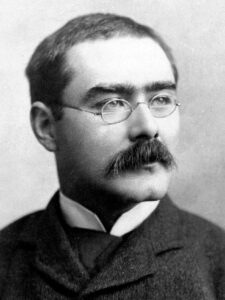Rudyard Kipling’s World Travels
Most of us are familiar with the many works of Rudyard Kipling such as The Jungle Book, Captain Courageous and Soldier Tales, but here are a few more things you might not know about him, including his world travels.
 Kipling was born in Bombay in 1865 where his father was a professor at the Bombay School of Art. He and his sister were supposedly sent to England five years later and placed in a foster home where they were mistreated, but when his mother came to England in 1876, she removed the children from the home and Rudyard was sent to a private boarding school instead.
Kipling was born in Bombay in 1865 where his father was a professor at the Bombay School of Art. He and his sister were supposedly sent to England five years later and placed in a foster home where they were mistreated, but when his mother came to England in 1876, she removed the children from the home and Rudyard was sent to a private boarding school instead.
In 1882, Kipling returned to India. He obtained a job as an assistant editor at The Civil and Military Gazette. At that time, he also began publishing some of his own works.
In 1889 he returned to London and in 1892 married Carolyn Balestier, an American lady. Eventually they moved back to America and settled in Vermont for a while. Over the following years, many of Kipling’s works were published and he became well known around the world.
In 1897, the Kiplings returned to England and moved to the countryside where Captain Courageous was published.
And did you know he also visited the capital city of British Columbia three times and loved the city? Although he was frequently accused of being very outspoken about what he thought of the many places he visited, he is often remembered in British Columbia for the short poem he wrote about his stay at the Oak Bay Hotel in Victoria (which was not very complimentary). By contrast, his beautiful poem about Victoria in general describes the city in a most charming way as follows:
“To realize Victoria, you must take all that the eye admires most in Bournemouth, Torquay, the Isle of Wight, the Happy Valley of Hong-Kong, the Doon, Sorrento, and Camps Bay: add reminiscences of the Thousand Islands, and arrange the whole round the Bay of Naples, with some Himalayas for the background….”.
Kipling continued to travel the world and to publish more books, poems, and short stories before his death in 1936.
During his lifetime, he had received numerous honorary degrees and awards, including the Gold Medal of the Royal Society of Literature in 1926, and in Victoria, British Columbia, an apartment building in Oak Bay bears his name. At his funeral, he was honored by pallbearers that included a prime minister, an admiral, and a general. He was laid to rest in Westminster Abbey in London.


